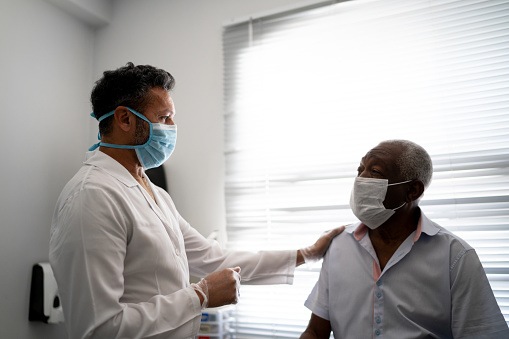
A study found that opportunities for end-of-life (EOL) care discussions for patients with cancer are frequently missed by oncologists. These findings were published in JAMA Network Open.
“Because oncologists often see patients across disease trajectories—building long-term relationships and rapport—they have unique opportunities to initiate early and continued conversations around goals of care,” wrote the study authors.
Opportunities to Address End-of-Life Care
The goal of this study was to identify successful and missed opportunities for EOL care discussions between oncologists and outpatients with advanced cancer. These topics include advance care planning, palliative and hospice care, discontinuation of treatment, and after-death wishes.
The investigators analyzed audio recordings of outpatients visits from 2010 through 2014 that were conducted for the Studying Communication in Oncologist-Patient Encounters randomized clinical trial. In total, 141 patients were enrolled from two academic medical centers. The majority of the patient cohort were white (87.2%) and 38.3% were women. Patients had stage IV malignancy neoplasm and their visits with medical, gynecological, and radiation oncologists were assessed. Of 39 oncologists, 19.5% were women and 82.9% were white. Mean age for patients and oncologists was 56.3 years.
The full sample included 423 visits. EOL discussions were defined as any passing mention or substantial discussion of EOL topics. A random sample of 31 patients (93 visits) was analyzed to determine missed opportunities.
The authors defined a missed opportunity as “a lack of practitioner exploration of patient values, goals, or preferences in response to a patient statement regarding cancer progression, death, or disease experience, despite an opening in the conversation where such a discussion would have been appropriate, or even necessary.”
Five Percent of Visits Include EOL Discussions
Twenty-one visits (5%) included discussions about advanced patient care, treatment discontinuation, hospice care, or after-death wishes. Seventeen patient-oncologist dyads (12%) had at least one EOL care discussion, and three dyads had more than one encounter with an EOL discussions. The 17 dyads with an EOL discussion included 13 oncologists (33%).
In the subgroup analysis of missed opportunities, 5% of visits included EOL discussions and 38% included missed opportunities. Assessment of multiple visits with missed encounters found that 61% of patient-oncologist dyads missed opportunities to discuss these topics, including 14 of 22 oncologists (64%).
Twenty-three oncologists in the full sample had either a missed opportunity or an EOL discussion, and 17.4% had both. The authors noted three themes of oncologist deflection of these topics, which led to missed opportunities to explore patient goals, including: inadequate response to patient concern related to disease progression or death; the use of optimistic future talk to address patient concern; or expression of concern over treatment discontinuation.
According to the authors, three themes were identified relating to ways in which oncologists successfully realized opportunities to bridge to EOL care discussions: reevaluation of treatment in response to patients’ expressions of concern; honoring patients as experts on their personal goals; and framing treatment revaluation using anticipatory guidance.
“Successful EOL conversations included anticipatory guidance about trade-offs of quality of life and symptom burden; these topics may be less uncomfortable for oncologists to broach and may be useful strategies for starting these conversations,” wrote the study authors. “Furthermore, oncologists who engaged in these conversations were meeting patients’ emotional concerns with understanding and empathy.”
In conclusion, the authors wrote, “Given that decades of work have aimed to improve oncologist communication of EOL topics, it is concerning these opportunities for discussion are still largely unheeded. Furthermore, missed opportunities to discuss advance care planning, palliative care, hospice care, treatment discontinuation, and after-death wishes allow aggressive, burdensome, and expensive EOL treatment to continue unchecked. Future efforts must address barriers, such as oncologists’ fear of upsetting patients and discomfort engaging in EOL discussions, and challenges inherent to providing a time-sensitive prognosis, in tandem with the need to respond to patient emotions and express empathy.”







 © 2025 Mashup Media, LLC, a Formedics Property. All Rights Reserved.
© 2025 Mashup Media, LLC, a Formedics Property. All Rights Reserved.